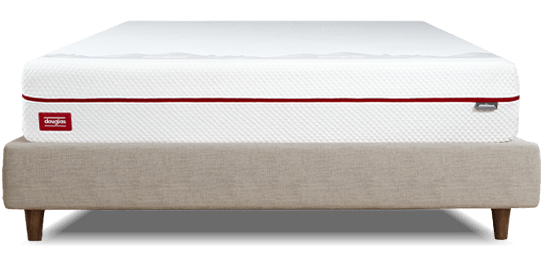The Science of Our Circadian Rhythm
Updated: December 9, 2025 | Published: August 15, 2025What is the Circadian Rhythm?
The National Institute of General Medical Sciences says our circadian rhythms are “physical, mental and behavioral changes that follow a roughly 24-hour cycle, responding primarily to light and darkness.” That’s cool because it means that we change our behavior and our reaction to the world according to where the sun is in the sky.
Our circadian rhythms are best known for controlling when we fall asleep and wake up. But they are also responsible for the release of certain hormones, our body temperature, and other physiological activities.
The effectiveness and predictability of an individual’s circadian rhythms are determined by our eyes — and how much light they absorb! There’s a group of around 20,000 nerves in the brain called the suprachiasmatic nucleus that sits just above the eyes in our hypothalamus. These nerves control the release of melatonin, which is the hormone that makes us sleepy.
The release of melatonin is regulated by the amount of light that enters into the optic nerve. Your eyes tell your suprachiasmatic nucleus when it’s sunny and when it’s starting to get darker. By dusk, your brain knows it’s getting close to a human’s traditional bedtime, so it releases melatonin.
Disrupting Our Circadian Rhythms
Of course, we often choose to disrupt our circadian rhythms by staying up late or getting up very early. Or perhaps we work a night shift, which can be grueling if we’re not used to it. This is partly because we find it so hard to adjust to a sleep pattern that works against our circadian rhythm. In such instances, people effectively choose to disrupt their typical sleep patterns, which means they’ll experience tiredness.
In recent years, there has been a more subtle disruption to many folks’ circadian rhythms that is mostly unwanted. The proliferation of handheld devices means that light — often potent blue light — is shot into our optic nerves after dusk. As a result, many people’s suprachiasmatic nuclei don’t release the appropriate amount of melatonin at the right times.
People put down their devices and go to bed, but find they are not tired. Their brains are awake like it’s dinner time! If these behaviours continue each day, an incredibly frustrating pattern of disrupted sleep may indicate an interrupted circadian rhythm.
What to Do With a Broken Circadian Rhythm
A maladjusted circadian rhythm can lead to several sleep disorders, not least of which is insomnia.
If you find your circadian coordination is off, there are ways to reset your rhythm. The easiest solution — but not the most prudent — is to take melatonin supplements. Melatonin occurs naturally in many plant extracts. So, unlike other human hormones that are strictly regulated, it is in most supermarkets and pharmacies.
However, bear in mind, these innocuous pills are a hormone, and they affect brain chemistry. If you decide to take melatonin to fix your circadian rhythm, it would be unwise to take a high dose. Instead, small doses of melatonin may help the brain get back on track.
It may also help to try other techniques for falling asleep, like breathing exercises or mindful muscle relaxation.
Sensible Decisions Promote a Good Night’s Sleep
A better, long-term solution relies on something harder than grocery shopping: putting the devices down at night. Indeed, switching off light-emitting devices an hour before bedtime is the best way to help the brain to prepare for bed. Likewise, adjusting the settings on your light-emitting devices to emit less blue light will give your optic nerve a break.
